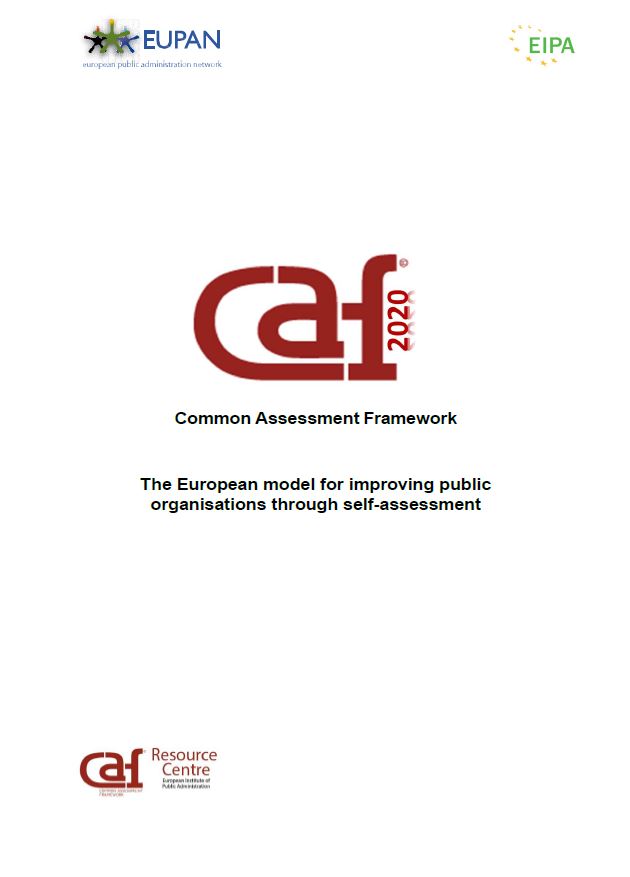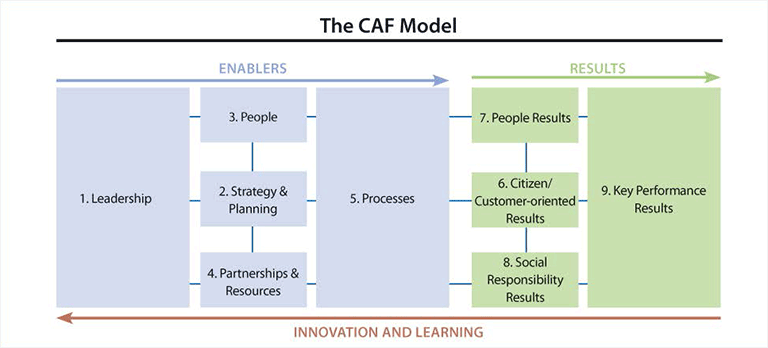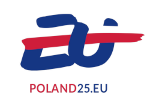The new CAF 2020 is published – 20 years of excellence in public administration
On 28 November 2019, the EUPAN Directors-General in Helsinki unanimously adopted the CAF2020. Currently, around 4,100 organisations use the CAF, and many countries have included the CAF in their administrative reform strategies. CAF2020 was developed by the European CAF Correspondents Network and the European Institute of Public Administration (EIPA) in an interactive two-year process. The idea to develop CAF2020 began in Tallinn in September 2017.
What’s new in CAF2020?
The basic structure with 9 criteria and 28 subcriteria has been preserved. The language has been simplified, shortened and is now more concise. CAF2020 reinforces the focus on digitisation, agility, sustainability, innovation, collaboration (participation) and diversity. As a result, there have been significant changes in each individual subcriterion and examples. However, users of previous CAF versions will not find it too difficult to become familiar with the new version; the compatibility with the predecessor, CAF2013, is ensured.
The permanent acquisition of information and participation has become an indispensable part of everyday life and work for many people. Citizens demand more, have become more critical and want to participate. This has put more pressure on traditionally shaped administrative structures and cultures. More agility and innovation in strategy development, in the organisation’s structures and processes and above all in the awareness of the staff is required in order to master the necessary change.
Download the CAF 2020 English.
https://www.eipa.eu/portfolio/european-caf-resource-centre/
What is CAF?
The Common Assessment Framework (CAF) is a result of the cooperation among the EU Ministers responsible for Public Administration. A pilot version was presented in May 2000 and revised versions were launched in 2002, 2006 and 2013. A CAF Resource Centre (CAF RC) was created at the European Institute of Public Administration (EIPA) in Maastricht following the decision of the Directors General in charge of public service. It works in close cooperation with the network of CAF national correspondents.
The CAF is an easy-to-use, free tool to assist public-sector organisations across Europe in using quality management techniques to improve their performance. The CAF is a Total Quality Management (TQM) tool which is inspired by the major Total Quality models in general, and by the Excellence Model of the European Foundation for Quality Management (EFQM) in particular. It is especially designed for public-sector organisations, taking into account their characteristics.
The model is based on the premise that excellent results in organisational performance, citizens/customers, people and society are achieved through leadership driving strategy and planning, people, partnerships, resources and processes. It looks at the organisation from different angles at the same time; a holistic approach to organisation performance analysis.
The CAF Manual

EUPAN CAF 2013 – How the CAF Model Strengthens Staff Participation, pdf
EUPAN CAF 2011 – Five Years of CAF 2006. From Adolescence to Maturity Whats Next, pdf 13MB
EUPAN CAF 2010 – CAF Brochure Procedure for External Feedback, pdf 1MB
EUPAN CAF 2010 – Growing Towards Excellence A Decade of European Collaboration with CAF, pdf 5MB
EUPAN CAF 2006 – The Common Assessment Framework CAF 2006, pdf
The CAF Model

The CAF aims to be a catalyst for a full improvement process within the organisations and has five main purposes to:
- introduce public administrations into the culture of excellence and the principles of TQM
- guide them progressively to a full fledged ‘Plan-Do-Check-Act (PCDA)’ cycle;
- facilitate the self-assessment of a public organisation in order to arrive at a diagnosis and improvement actions;
- act as a bridge across the various models used in quality management;
- facilitate bench learning between public-sector organisations.
Highly appreciated in the CAF implementation is the involvement of staff. CAF is a joint project for management and staff and very often CAF is the first occasion in which management and staff
meet to discuss the state of affairs of the organisation and the options for the future in order to improve efficiency and effectiveness.
The use of CAF in Europe
Since the year 2000, nearly 2000 public sector organisations all over Europe have used the model and the number of CAF Users is still growing.
In 2009, the CAF External Feedback has been created to further support organisations in using the CAF most effectively in their future quality management journey. This procedure carried out by peers and experts in TQM aims at providing external feedback on the introduction of total quality management with the help of CAF, not only relating to the self-assessment process, but also regarding the path organisations have chosen to attain excellence in the long run.
More information on the EIPA website



